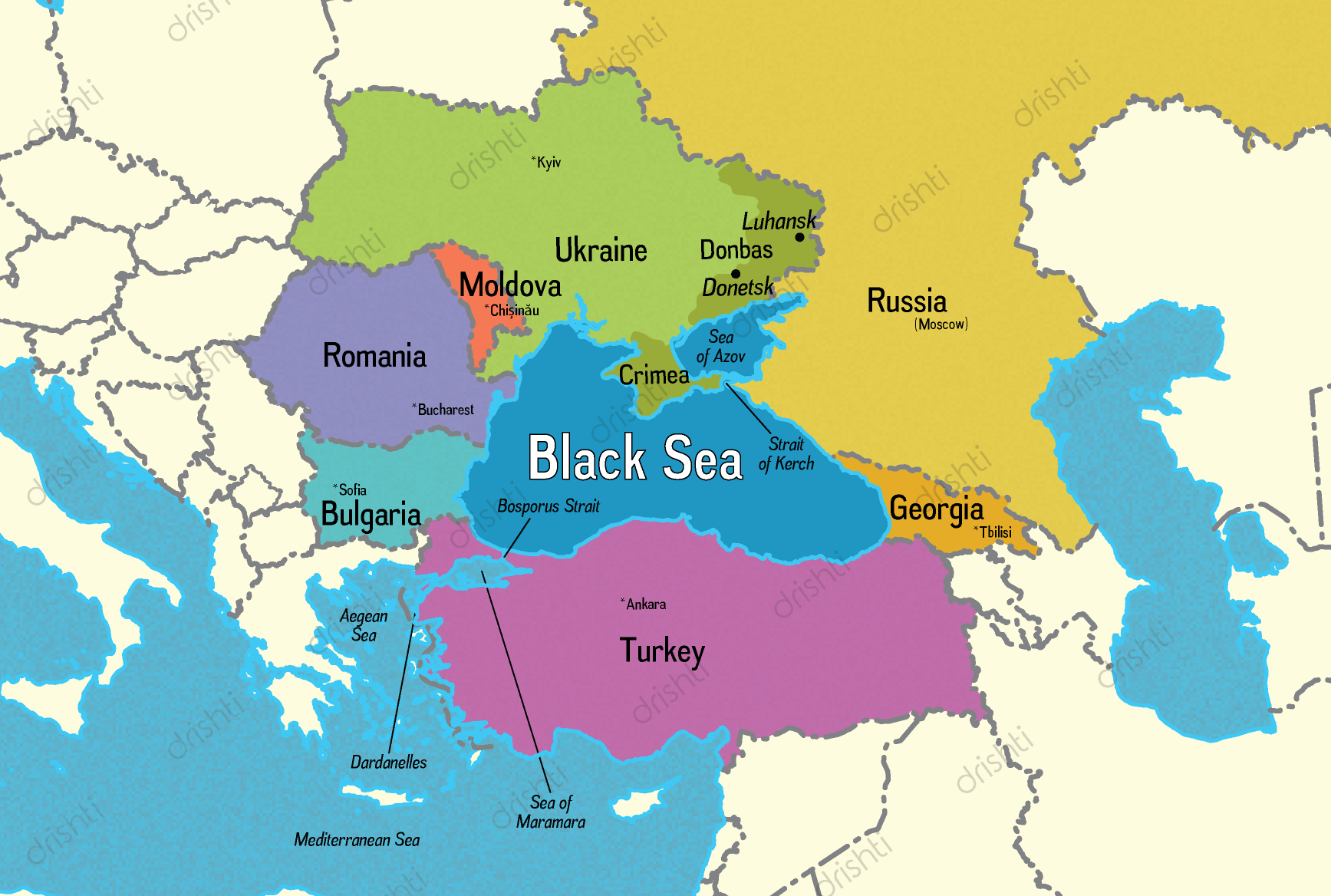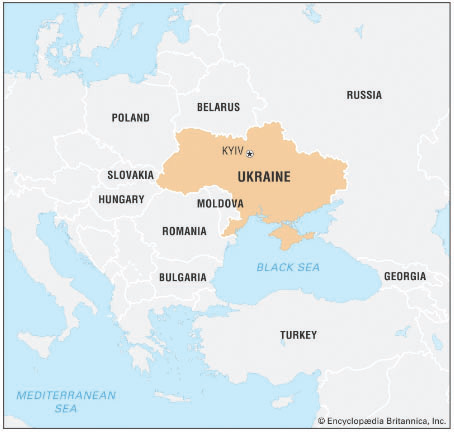Negotiations to Revive Black Sea Grain Deal | 09 Sep 2023
For Prelims: Negotiations to Revive Black Sea Grain Deal, United Nations (UN), Food Crises, NATO (North Atlantic Treaty Organization).
For Mains: Negotiations to Revive Black Sea Grain Deal.
Why in News?
Recently, the Turkish President has met with the Russian President in order to revive Black Sea Grain Deal, which Russia had withdrawn from in July 2023.
What is the Black Sea Grain Initiative?
- About:
- The Black Sea Grain initiative endeavors to tackle escalating food prices emanating from supply chain disruptions because of Russian actions in the world’s ‘breadbasket’.
- The deal brokered by the United Nations (UN) and Turkey, was signed in Istanbul in July, 2022.
- The Initiative specifically allows for commercial food and fertilizer (including ammonia) exports from three key Ukrainian ports in the Black Sea – Odesa, Chornomorsk, Yuzhny/Pivdennyi.
- Objective:
- Initially stipulated for a period of 120 days, the deal was to provide for a safe maritime humanitarian corridor for Ukrainian exports (particularly for food grains).
- The central idea was to calm markets by ensuring an adequate supply of grains, thereby limiting food price inflation.
- Role of Joint Coordination Centre (JCC):
- The JCC was established to monitor the implementation of the Black Sea Grain Initiative.
- The JCC is hosted in Istanbul and includes representatives from Russia, Türkiye, Ukraine and the UN. The UN acts also as the Secretariat for the Centre.
- All commercial ships are required to register directly with the JCC to ensure appropriate monitoring, inspection and safe passage. Inbound and outbound ships (to the designated corridor) transit as per a schedule accorded by the JCC post-inspection.
- This is done so as to ensure there is no unauthorised cargo or personnel onboard.
- Following this, they are allowed to sail onwards to Ukrainian ports for loading through the designated corridor.
What are the Reasons Behind Russia's Exit from the Grain Deal?
- Russia claims that the promises made to it under the deal have not been met, and it is still facing trouble exporting its own agricultural products and fertilisers because of the many sanctions the West has slapped on it.
- While there is no direct restriction on Russia’s agricultural products, the country says barriers on payment platforms, insurance, shipping and other logistics are hampering its exports.
- Russia has also said that it had agreed to the grain deal in order to help ensure global food security, but Ukraine has since exported mainly to high-and middle-income countries.
- Russia cited the failure to uphold a parallel agreement that promised to remove obstacles to its exports of food and fertilizer as the reason for its withdrawal.
- Russia claimed that shipping and insurance restrictions hindered its agricultural trade, despite its record-breaking wheat exports in recent years.
What is Turkey’s Stake at Brokering the Deal?
- Turkey has played a crucial role in attempting to reinstate the grain deal. It has consistently pledged to renew arrangements that helped prevent Food Crises in various parts of Africa, the Middle East, and Asia.
- Both Ukraine and Russia are significant suppliers of wheat, barley, sunflower oil, and other essential goods for developing nations.
- Turkey's close ties with Putin during the 18-month Ukraine conflict have positioned it as a vital trading partner and logistical hub for Russia's international trade.
- Despite its NATO (North Atlantic Treaty Organization) membership, Turkey has refrained from imposing Western sanctions on Russia following its invasion of Ukraine, highlighting its unique diplomatic position.
Why is the Black Sea Grain Initiative Important?
- Ukraine is among the largest exporters of wheat, maize, rapeseed, sunflower seeds and sunflower oil, globally.
- Its access to the deep-sea ports in the Black Sea enables it to directly approach Russia and Europe along with grain importers from the Middle East and North Africa.
- The initiative has also been credited for having made a huge difference to the global cost of living crisis.
- This agreement facilitated the safe export of nearly 33 million metric tons (36 million tons) of grain and other commodities from three Ukrainian ports despite Russia's Ongoing War.
- People hoarding the grain in the hope of selling it for a sizable profit owing to the supply crunch were now obligated to sell.
- Although the initiative alone cannot address global hunger, it can avert the chances of the global food crisis spiralling further, especially when the region is yet to scale prior year levels.
How are Russia, Ukraine Grain Exports Faring Amid the War?
- Russia is consolidating its position as the world’s top wheat exporter, even as Ukraine’s shipments are projected to more than halve from their peak and production plunge to a 11-year-low.
- The primary destinations for Russian wheat are the Middle East, North Africa and Central Asia, led by Egypt, Iran and Algeria.
- While the Black Sea Grain Initiative helped Ukraine export 16.8 million tonnes in 2022-23, about 39% of its wheat actually moved via the land route to Eastern Europe.
- Ukraine’s markets have shifted dramatically from Asia and North Africa before the war to mainly Europe, mostly due to ease of shipment.
- In fact, glut of Ukrainian grain has led to protests from farmers in some Eastern European countries, who said the price of their produce had crashed.
UPSC Civil Services Examination Previous Year’s Question (PYQs)
Q. Consider the following countries: (2023)
- Bulgaria
- Czech Republic
- Hungary
- Latvia
- Lithuania
- Romania
How many of the above-mentioned countries share a land border with Ukraine?
(a) Only two
(b) Only three
(c) Only four
(d) Only five
Ans: (a)
- As per the map given below, only Hungary and Romania share their land borders with Ukraine.
- Hence, option A is correct.


